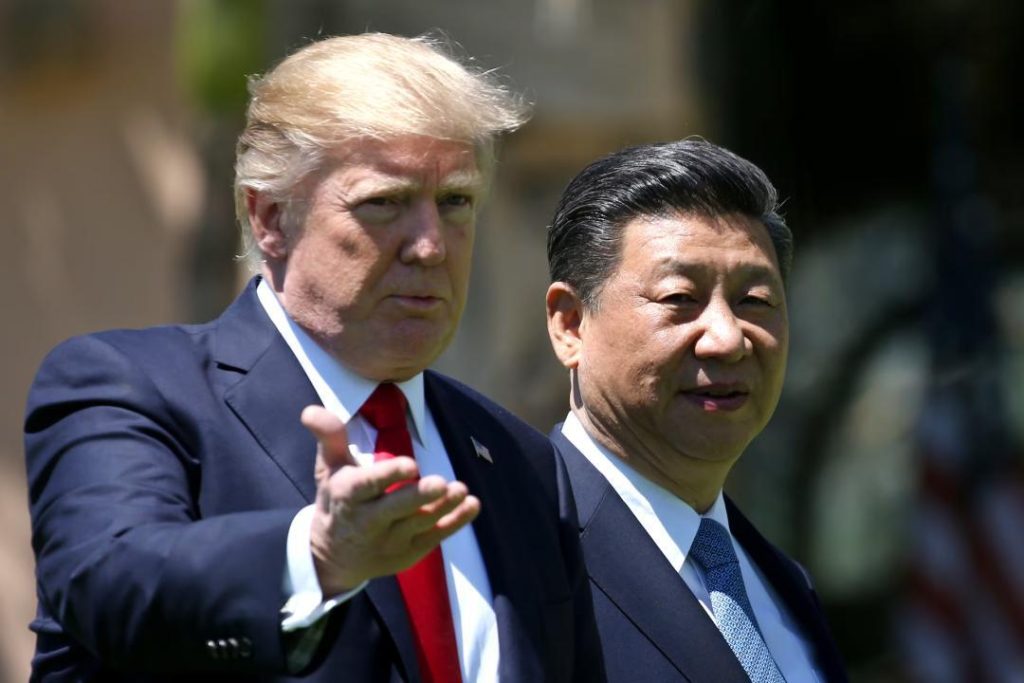
Trump to Allow 6,00,000 Chinese Students in US Amid Tariff Talks
In a significant move, US President Donald Trump has announced that the United States will permit entry to 6,00,000 Chinese students amid ongoing tariff talks with China. This decision reverses earlier visa restrictions targeting Chinese nationals tied to the Communist Party or sensitive research.
The news comes as a surprise, given the ongoing tensions between the two nations. However, Trump emphasized improving US-China relations despite tariffs and expressed interest in meeting President Xi Jinping later this year to discuss trade.
The move is seen as a significant step towards easing tensions between the two nations, which have been locked in a trade war for months. The Trump administration had earlier imposed restrictions on Chinese students, including those tied to the Communist Party or involved in sensitive research.
However, the new development suggests that the US is willing to ease those restrictions in order to improve ties with China. The 6,00,000 Chinese students who will be allowed to enter the US include those in fields such as science, technology, engineering, and mathematics (STEM), as well as those pursuing graduate degrees.
The decision is likely to have significant implications for the US higher education sector, which has long relied on international students to fill gaps in enrollment. Chinese students have been a significant source of revenue for US universities, with many institutions having invested heavily in recruiting them.
The news has been welcomed by universities and education institutions in the US, which have been advocating for a more relaxed approach to visa restrictions. “This is a huge win for international students and for the US higher education sector,” said a spokesperson for the National Association of Foreign Student Advisers.
The move is also seen as a significant gesture of goodwill towards China, which has been critical of the US’s handling of the trade war. China has imposed retaliatory tariffs on US goods, including soybeans, corn, and pork, and has also restricted access to its markets for US companies.
However, not everyone is pleased with the decision. Some lawmakers have expressed concerns that the move could undermine national security, given the close ties between some Chinese students and the Communist Party.
“We need to be careful about who we’re allowing into the country,” said Senator Martha McSally, a Republican from Arizona. “We can’t just open the doors to anyone who wants to come in.”
Despite these concerns, the decision is likely to be seen as a significant step towards easing tensions between the two nations. The US and China have been engaged in high-level talks aimed at resolving the trade war, and the decision to allow more Chinese students into the US could be seen as a gesture of goodwill.
In a statement, the White House said that the decision was part of the administration’s efforts to “promote people-to-people ties” between the US and China. “We believe that welcoming international students, including those from China, will help to promote greater understanding and cooperation between our two nations,” the statement said.
The decision is also likely to have significant implications for the US-China relationship in the long term. The two nations have a complex and multifaceted relationship, with significant economic, political, and cultural ties.
Despite the tensions over trade, the US and China cooperate on a range of issues, including climate change, non-proliferation, and counter-terrorism. The decision to allow more Chinese students into the US could be seen as a step towards strengthening these ties.
In conclusion, the decision to allow 6,00,000 Chinese students into the US amid tariff talks is a significant development in the US-China relationship. While it may have implications for national security and the trade war, it is also a step towards improving ties between the two nations.
As the US and China continue to negotiate a trade deal, this decision could be seen as a gesture of goodwill. It also highlights the importance of people-to-people ties in promoting greater understanding and cooperation between nations.
Source:



